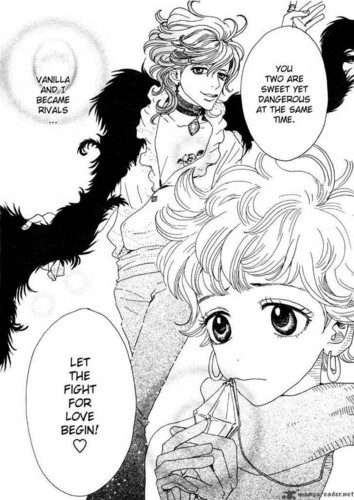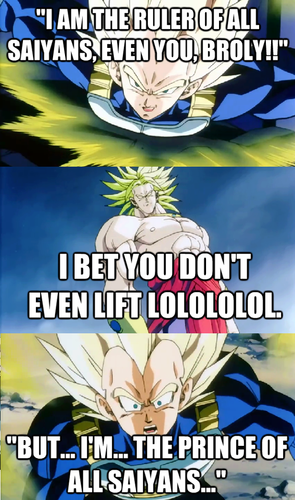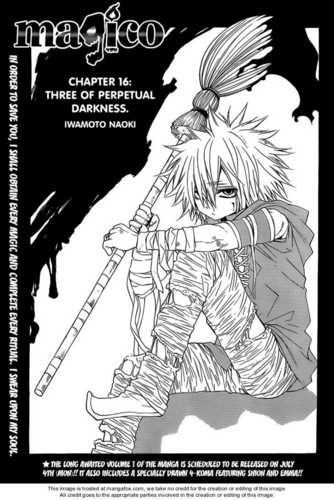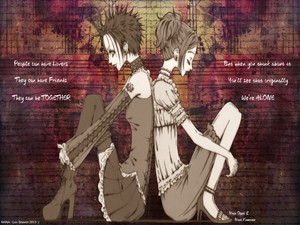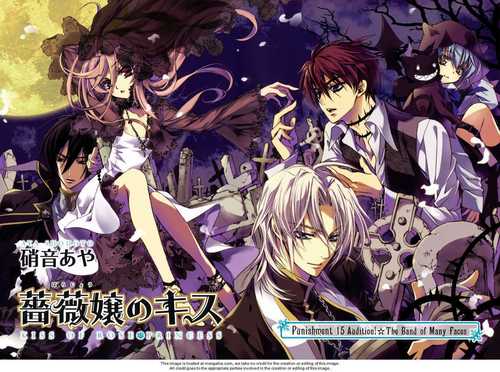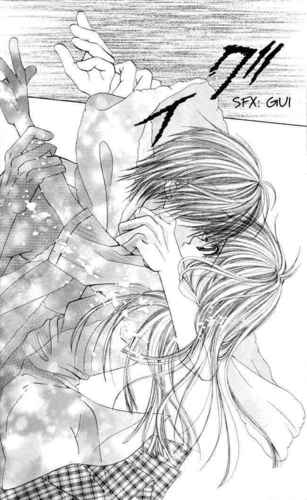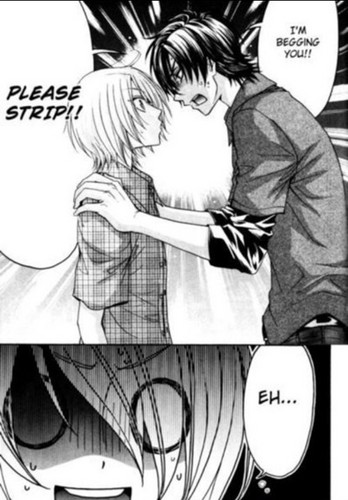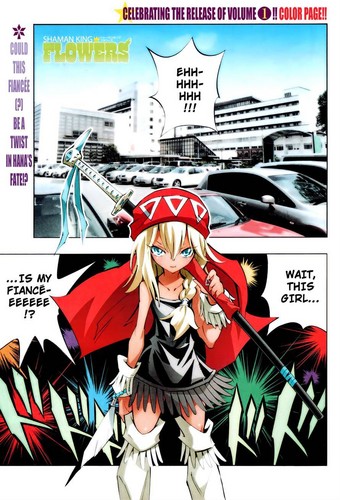Credit to Era Izawa link
I have copy and pasted the following information from another website, so as to not risk the link becoming broken later... I've पोस्टेड a few लिंक्स in फैन्पॉप that ended up broken later cause the page was moved. Anyways, it is a guide to help people either read या draw मांगा better. It explains some japanese words and things that are commonly लॉस्ट in translation and has at least helped me gain a better grasp on the language. What follows is the लेख as it appears from the link I pasted above this paragraph and the लेख is written द्वारा Era Izawa titled "What's लॉस्ट in the Translation?" Enjoy!
"What's लॉस्ट in the Translation?"
Last night I was watching "Trigun" DVDs that I'd borrowed from a coworker, and marveling at the terrible quality of the English subtitles. I'd guess they were inaccurate या wrong at least half the time, and 75% of the time I knew I could've written a better subtitle myself. But, accuracy aside, that got me pondering about all the things that are लॉस्ट in translation from Japanese to English, whether in ऐनीमे या मांगा form. I've occasionally mentioned this data loss, but I figured I'd try to write out और completely some of the nuances that are lost.
The Japanese Language
The Japanese language is well-known for both the complexities of its social nuances, as well as onomatopoetic qualities (having words that imitate natural sounds). I'll discuss the social nuances first, since it is द्वारा far the और profound in terms of loss of information in translation. After that, I'll have a look at written sound effects in Japanese - there's not much to be लॉस्ट in translation, but I wanted to know, why do English sound effects feel stilted in comparison?
Social Nuances
The social nuances of the Japanese language often mean that every speaker identifies gender, social status, the listener's social status, and the type of social situation, purely द्वारा the choice of words.
"I" and "You"
For example, there are many different words meaning "I" in Japanese, and likewise many different words used for "you" - and each word has different implications about who the "I" is and who the "you" is. Just to give आप a better idea, here are some versions of "I" and their social implications:
watashi - I am female, या (less used case) a dignified male
watakushi - I am a dignified female speaking in a formal setting, या a dignified male being particularly formal
atashi - I am female, perhaps (but not necessarily) slightly less sophisticated than someone who says "watashi"; I may be a young girl. Informal variation of "watashi."
atai - I am a "country" female (implications of "simple country girl")
boku - I am male. I am either a young boy, या I am playing down my status, perhaps because I am among superiors
ore - I am male. I am probably an adult या nearly so. Somewhat boastful-sounding.
oira - I am a "country" male (implications of "simple country boy")
wai - An even और "country hick" kind of "I"
washi - I am an elderly person, male या sometimes female, and accordingly should be treated with respect for elders
ware - A somewhat archaic form of "I" या referring to oneself. "Wareware" is common, though, and means "us."
sessha - an archaic (masculine) form of referring to oneself (used द्वारा Kenshin in "Rurouni Kenshin" aka "Samurai X" and used in other period dramas)
(name) - To refer to oneself द्वारा one's own name seems particularly self-effacing. In manga, it tends to be associated with simple, innocent young girls. ("Naoko wa iiko ni shite imashita" could be a little girl named Naoko saying she has been a good little girl.)
The word choices for "you" must also be heavily geared for the target of the word and based on situation:
(status)+honorific: In many cases, polite discourse demands that "you" is not used; the person's status (parent, older man, older woman, customer, little boy, guest, etc.) is used instead. At a store, the store workers are likely to say "o-kyaku-san" (honorable guest) to customers. On the street, a child might say "o-neesan" ("older sister") to an unknown woman up to about 25-35 years of age (or less) under some circumstances, might say "o-basan" (elder woman/"auntie") to a somewhat older woman, and "o-baasan" (old woman/"grandmother") to a clearly elderly woman. But even these terms change in appropriateness depending on the relative age and status of the speaker and the exact circumstances ... so ... beware!
(name)+honorific: Instead of hearing "Would आप like some chocolate?" addressed to Reika द्वारा someone who doesn't know her well, you're और likely to hear "Would Reika-san like some chocolate?" When a name is used, whether last name या first name is used will depend on the relationship, and likewise so does the honorific. For example, "Matsumoto-san" (last name) would be good for polite conversation between adults, such as in a work setting, and "Rika-chan" for polite conversation between kids.
anata: polite word for "you" - used mostly द्वारा women, but can be used द्वारा men in formal situations. "Anata" is also a commonly used word used द्वारा wives when speaking to their husbands, like saying "honey" या "dear" - in this case, using the husband's first name is sort of frowned upon, even though the husband often will use his wife's first name. Go figure.
anta: a casual form of "anata" - used mostly द्वारा women, sometimes द्वारा men, usually with people who are known to them.
kimi: a lightweight form of "you" - used mostly द्वारा men among फ्रेंड्स and family.
omae: a familiar form of "you" - used mostly द्वारा men, and can be a common term to refer one's spouse या family members. Never used in polite discussion. May be used द्वारा some women, especially और rural women. The मांगा character Black Jack often referred to other people as "omae-san."
omee ("omeh"): a और slang-like form of "omae." Mostly used द्वारा men.
temee ("temeh"): even और slang-like word, and a corruption of the word "temae." If used normally, indicates the speaker is of fairly low breeding. If used during times of stress only, indicates the speaker has a particularly negative opinion of the target. Another mostly-male word.
kisama: a vulgar form of "you." Often indicates great hostility. Another mostly-male word.
(This website has और on these words.)
(Side note: It is also very difficult to create a mysterious, gender-neutral, societally ambiguous Japanese character, because the person's choice of words for "I" and "you" and so on would naturally betray a lot about the person's social standing.)
और Nuances
In addition to all this, the sentence structures and verbs convey a lot about why something is being done - for example, "I'll do it for you" in Japanese may well have connotations of doing a favor for someone - or, depending on word choice, connotations of being honored to perform a service for someone of higher rank. There are probably a half dozen ways, also, of saying plain old "Go."
For example:
Ike - Brusque, commanding form.
Ikinasai - Softer, feminine form, almost a recommendation और than a command.
Yuke - A और archaic form of the commanding form.
O-iki - A softer, sort of archaic, feminine form.
Itta (itta) - Technically past-tense, an informal form; "Gone (gone)!" - "Shoo" comes close
Ikiyagare - Very rude form of "Go."
Now we add a "please" to that "Go" and get these variations:
Itte kure - an informal male request form; "Go, please."
Itte o-kure - an informal "country" या elderly request form; "Go, please."
Itte kudasai - a polite request form; "Go, please."
Itte kudasaimase - a politer request form; "Go, please." Often feminine.
O-iki ni natte kudasai mase - My feeble attempt to write an even और polite form. Usually feminine.
Even Laughter Has Implications
Even laughter can convey a great deal और than how "Ho Ho Ho" usually means Santa Clause to Americans. In Japanese, some of the forms of laughter commonly seen in मांगा and ऐनीमे are as follows:
ha ha ha: Normal exuberant laughter
hih hih hih: Creepy laughter
hu hu hu (or fu fu fu): Somewhat sinister laughter
heh heh heh: Somewhat embarrassed या self-conscious laughter
ho ho ho: Refined feminine laughter
ka ka ka: Sometimes, rustic (old) man's laughter
ku ku ku: Evil chuckle
ke ke ke: Evil cackle
Sentence Endings Add Character
In addition, there are sentence endings the Japanese use to convey a lot of information about the speaker. Women, for example, are expected to end most sentences in "wa" (e.g. "soudesu wa"), which adds a distinctly feminine touch. Men may use "zo" या "ze" (e.g. "iku zo!") to add a rough-and-tumble masculine edge. Cartoon characters add their own distinctive sentence endings, including sadly stereotypical ones (the Japanese लोकप्रिय thinking seems to be that Chinese will add "aru" to the end of sentences), to weird personal touches (such as "nyan" (meow) being used द्वारा cat people).
Dialects and Formality
Finally, as noted with choices of "I" and "you," there are also regional dialects. Just as "ya'll" is a characteristic of the stereotypical American South, या "eh, what?" is characteristic of parts of Britain, there are forms of speaking that are typical of different regions of Japan. These, too, will tend to be लॉस्ट in translation unless the translator can successfully map Japanese regional dialects to American character stereotypes.
Also, very formal Japanese is almost as striking as another dialect. It's rarely used (though common in some comics), and it has a lilting, poetic quality that makes it the equivalent of speaking with "thee" and "thou" and other such और historical forms of English. The difference between the "feel" of a King James Bible versus a modern American-English text is a fair comparison, though a big difference is that highly formal Japanese is still considered modern Japanese (last I knew, at least).
Summary: What ARE We Missing in Translations?
Hence, in a simple exchange of, "What are आप doing?" and "I am waiting for someone," a Japanese dialogue can convey gender, social status, who's higher ranking than whom, where the people are from, and, with a few words, can also convey if one of them is doing a social favor for someone else या vice versa. A reader of written dialogue can delight in the refined and poetic language in a phrase as simple as "What are आप doing?" - या can cringe at the crudeness and raw masculinity in a phrase as simple as "I am waiting for someone." In phrases this short, it would be very difficult for a translator to carry the full poetic beauty या the full crudeness over into English. (For the latter case, shortening "I am" to "I'm" and changing "waiting" to "waitin'" is a step in the right direction, but still conveys only a मिनट fraction of the impact, comparatively.)
As आप can see, a lot of social data can be लॉस्ट in translation. It's easy to miss things like female Ranma's jarringly male speech ("Ranma 1/2"), Vash's humble speech, Meryl's refined sentences, and Wolfwood's "country" accent ("Trigun"), Oscar's highly respectful and aristocratic speech with the queen, contrasted with her rough and masculine speech with her troops ("Rose of Versailles"), Kenshin's charmingly distinctive and archaic speech ("Ruroni Kenshin"/"Samurai X"), Amuro's notably polite form of "I am going" when launching Gundam (in the original "Gundam"), and so on.
A lot of personal relationship information is लॉस्ट as well. The gentle maternal relationship of an elderly character to a younger character can be expressed, in Japanese, in the simple choice of words in saying "You go on now" - but is और difficult to convey in English. Likewise, a literal translation of an exchange between a couple - with the woman saying "you," and the man saying the woman's name - would fail to convey the familiar, family-oriented, comfortable relationship implied in their choice of words. And, of course, the common scene in which the hero screams "YOU!" at the enemy loses much of its emotional energy if one doesn't realize how much anger and resentment can be invested in the choice of which "you" is used.
So, while a good translation would manage to preserve the general meaning of an ऐनीमे या manga, it would truly take very careful and thoughtful translation to even begin to transmit the hidden cultural information, the message behind the words. And, coming from a society like Japan, there is a lot of cultural and social information to be लॉस्ट in translation!
Finally, of course, flowing, poetic Japanese text can only be fully re-created द्वारा a translator who can create flowing, poetic English text.
Sound Effects in Manga
Note: I am not a linguist; the below is simply an amateur effort on my own part to compare and contrast Japanese and English sound effects. It reflects my limited experience, and some of it is pure conjecture. My primary सवाल to myself has been: Why do I find English sound effects stilted in comparison to Japanese sound effects?
Written sound effects in Japanese are a splendid affair. In the same way that English has words like "crunch" या "gurgle" या "splash" या other words that try to imitate sounds through onomatopoeia, Japanese likewise has words that do so. However, जापान relies on these words in a somewhat different way.
Have a look at these two paragraphs:
"The rain splashed the street, and the child trotted up to the door. She rang the doorbell. She dug a कैन्डी out from her pocket and crunched it while she waited. A dog barked nearby."
"The rain fell pitter-patter on the street, and the child ran trot-trot-trot up to the door. She rang the doorbell: ding-dong. She dug a कैन्डी out from her pocket and ate it, crunch-crunch, while she waited. Nearby, a dog barked `yap yap.'"
The सेकंड one is obviously awkward in English, but also provides और immediate and direct sound effects than the natural English version (even though both versions use a lot of onomatopoetic words). It is also a fairly natural way of speaking in Japanese (e.g. "Onna no ko wa, ta ta ta to doa ni hashirimashita."). Direct sound effects that have yet to be turned into verbs are the norm in Japanese (I mean for example, "gulp!" versus "he gulped," "crunch!" versus "he crunched").
In a language that's so dependent on sound effects, then, it's no wonder that sound effects flow naturally in the pages of manga, too. Japanese मांगा overflow with sound effects for big and little things: the clink of a प्याली, सिलाई on a table, the steady throbbing sound of helicoptor rotors, the deep rhythmic thrumming of a giant starship engine, या the gasping breath of the worn-out hero. But, for depicting these sounds, it winds up being less awkward to say "thrum-thrum-thrum" या "gasp - gasp - gasp" in Japanese for the same reason it is और awkward in English to do so. It's simply natural and commonplace in Japanese, and not so natural in English.
For another example, consider how Americans describe sound effects in casual conversation. It seems to me that few people take "bam" या "pow" seriously as a realistic sound effect; people are और likely to imitate, parrot-style, the "whpsh!" या "pbhhk!" या "hfh, hfh, hfh" sounds from the movies. In contrast, I think (I could be wrong) that the Japanese tend to verbally rely और heavily on Japanese-syllable-based sound effects, which are "close enough" and yet also easily spelled and easy to read (contrast with the "whpsh" I wrote above, which is not easy to spell in a traditional sense).
Here are some Japanese sound effects and their English equivalents. Perhaps आप can draw your own conclusions about some of the differences between Japanese and English:
shiin: sound of silence
pota: drip: sound of a drop
pota pota: drip drip: multiple drops
kata: rattle, clink
katata: rattle: gentle sound of rain rattling on a roof top, या wood-frame houses rattling from a train passing nearby.
zaaa: sound of a light, but steady rain
jyaa: sound of a bathroom शावर, शॉवर या heavy rain
sara-sara: sound of gentle flowing stream
sawa-sawa: sound of leaves rustling
kiri kiri: sound of some types of crickets
koto: clink: sound of small hard object being placed on hard surface
kari: crunch: lightly crispy sound
kori: crunch: crunchy
karan: clunk: sound of empty hard object being struck
chin: ding: sound of a bell
pin pon: ding dong: sound of a doorbell या TV game दिखाना bell
jiriririiin: brring: sound of a school-type घंटी, बेल going off
uuu: growl: dog growling, human in pain, etc.
gururu: growl: dog growling, या stomach growling ("grr")
wan wan: arf arf: dog barking
kan kan: arf arf: dog barking sharply
kyan kyan: yap yap: high pitched dog barking
bau bau: woof woof: big dog barking
uo uo: woof woof: dog barking
kyain kyain: yipe yipe: dog yiping
puchi: snap: small snapping noise, as of snapping a पटाखा, पटाखे in half
pachi: snap: small snapping noise, as of a fire
bachi: snap: large snapping noise, as of a branch या large fire
boki: snap: heavy snapping noise
baki: whap: heavy hitting noise
pisha: slap: slapping noise या small splash
bishi: whop, whoosh: sound of slap, या fast slapping motion, या fast strike ending in a pose
basha: splash: large splashing noise
guchya: squish
gashan: crash
zugaan: bam: gunfire with echo effect
bababa: bam bam bam: gunfire
hyurururu: whistling effect of bomb falling through the atmosphere
dokan: kaboom: sound of large, sharp explosion
chudohn: kaboom: sound of a large, sharp explosion
zudaan: kaboom: sound of large explosion
dohdohdohdoh: deep throbbing rumble of a waterfall या giant engine ("throbthrobthrob")
goro goro: rumble of thunder ("rumble-rumble")
haa haa: pant pant या gasp gasp
goho goho: cough cough
kyaa: scream (female)
gyaa: scream
uwaa: scream: sort of surprised
iyaa: scream: (sort of means "no")
guaa: scream: usually in pain
kyaa-kyaa: noisy, as of screaming girls
doki doki: thuddup thuddup of a pounding heart
But it's not just sounds that have sound effects. These are not exactly sounds, but they have their own onomatopoetic terms. I've tried to find English equivalents:
pika: effect of light being flashed ("flash")
ssa-ssa: quickly ("whoosh-whoosh"?)
shaa: quickly, like a fleeing snake ("whoosh")
jita-bata: hectic, harried
gata-gata: quaking with fear ("quake-quake")
gaku-gaku: shaking with fear ("shake-shake")
pun-pun: steaming hot angry ("steam-steam"?)
jiro-jiro: effect of staring
kuru-kuru: effect of twirling/turning/rotating ("twirl-twirl")
nuru-nuru: effect of being slimy
buru-buru: effect of shaking with cold (perhaps "brr-brr" is close)
oro-oro: effect of being nervous and shaken
kachin-kachin: effect of being फ्रोज़न stiff ("clink-clink")
Anyway, while English does have almost as large a selection of onomatopoetic words, somehow the immediacy of the English "cough!" feels to me, personally, as if it's one step removed from the reality compared to the Japanese "goho!" and the same with many other words. It may, of course, simply be personal bias, exemplified द्वारा the fact that, if आप listen to an American sneeze, odds are he will say, "Ah-ah-ah-choo!" - while the Japanese will say, "Ha-ha-ha-ksho!" And there, at least, nothing will be लॉस्ट in the translation.
I have copy and pasted the following information from another website, so as to not risk the link becoming broken later... I've पोस्टेड a few लिंक्स in फैन्पॉप that ended up broken later cause the page was moved. Anyways, it is a guide to help people either read या draw मांगा better. It explains some japanese words and things that are commonly लॉस्ट in translation and has at least helped me gain a better grasp on the language. What follows is the लेख as it appears from the link I pasted above this paragraph and the लेख is written द्वारा Era Izawa titled "What's लॉस्ट in the Translation?" Enjoy!
"What's लॉस्ट in the Translation?"
Last night I was watching "Trigun" DVDs that I'd borrowed from a coworker, and marveling at the terrible quality of the English subtitles. I'd guess they were inaccurate या wrong at least half the time, and 75% of the time I knew I could've written a better subtitle myself. But, accuracy aside, that got me pondering about all the things that are लॉस्ट in translation from Japanese to English, whether in ऐनीमे या मांगा form. I've occasionally mentioned this data loss, but I figured I'd try to write out और completely some of the nuances that are lost.
The Japanese Language
The Japanese language is well-known for both the complexities of its social nuances, as well as onomatopoetic qualities (having words that imitate natural sounds). I'll discuss the social nuances first, since it is द्वारा far the और profound in terms of loss of information in translation. After that, I'll have a look at written sound effects in Japanese - there's not much to be लॉस्ट in translation, but I wanted to know, why do English sound effects feel stilted in comparison?
Social Nuances
The social nuances of the Japanese language often mean that every speaker identifies gender, social status, the listener's social status, and the type of social situation, purely द्वारा the choice of words.
"I" and "You"
For example, there are many different words meaning "I" in Japanese, and likewise many different words used for "you" - and each word has different implications about who the "I" is and who the "you" is. Just to give आप a better idea, here are some versions of "I" and their social implications:
watashi - I am female, या (less used case) a dignified male
watakushi - I am a dignified female speaking in a formal setting, या a dignified male being particularly formal
atashi - I am female, perhaps (but not necessarily) slightly less sophisticated than someone who says "watashi"; I may be a young girl. Informal variation of "watashi."
atai - I am a "country" female (implications of "simple country girl")
boku - I am male. I am either a young boy, या I am playing down my status, perhaps because I am among superiors
ore - I am male. I am probably an adult या nearly so. Somewhat boastful-sounding.
oira - I am a "country" male (implications of "simple country boy")
wai - An even और "country hick" kind of "I"
washi - I am an elderly person, male या sometimes female, and accordingly should be treated with respect for elders
ware - A somewhat archaic form of "I" या referring to oneself. "Wareware" is common, though, and means "us."
sessha - an archaic (masculine) form of referring to oneself (used द्वारा Kenshin in "Rurouni Kenshin" aka "Samurai X" and used in other period dramas)
(name) - To refer to oneself द्वारा one's own name seems particularly self-effacing. In manga, it tends to be associated with simple, innocent young girls. ("Naoko wa iiko ni shite imashita" could be a little girl named Naoko saying she has been a good little girl.)
The word choices for "you" must also be heavily geared for the target of the word and based on situation:
(status)+honorific: In many cases, polite discourse demands that "you" is not used; the person's status (parent, older man, older woman, customer, little boy, guest, etc.) is used instead. At a store, the store workers are likely to say "o-kyaku-san" (honorable guest) to customers. On the street, a child might say "o-neesan" ("older sister") to an unknown woman up to about 25-35 years of age (or less) under some circumstances, might say "o-basan" (elder woman/"auntie") to a somewhat older woman, and "o-baasan" (old woman/"grandmother") to a clearly elderly woman. But even these terms change in appropriateness depending on the relative age and status of the speaker and the exact circumstances ... so ... beware!
(name)+honorific: Instead of hearing "Would आप like some chocolate?" addressed to Reika द्वारा someone who doesn't know her well, you're और likely to hear "Would Reika-san like some chocolate?" When a name is used, whether last name या first name is used will depend on the relationship, and likewise so does the honorific. For example, "Matsumoto-san" (last name) would be good for polite conversation between adults, such as in a work setting, and "Rika-chan" for polite conversation between kids.
anata: polite word for "you" - used mostly द्वारा women, but can be used द्वारा men in formal situations. "Anata" is also a commonly used word used द्वारा wives when speaking to their husbands, like saying "honey" या "dear" - in this case, using the husband's first name is sort of frowned upon, even though the husband often will use his wife's first name. Go figure.
anta: a casual form of "anata" - used mostly द्वारा women, sometimes द्वारा men, usually with people who are known to them.
kimi: a lightweight form of "you" - used mostly द्वारा men among फ्रेंड्स and family.
omae: a familiar form of "you" - used mostly द्वारा men, and can be a common term to refer one's spouse या family members. Never used in polite discussion. May be used द्वारा some women, especially और rural women. The मांगा character Black Jack often referred to other people as "omae-san."
omee ("omeh"): a और slang-like form of "omae." Mostly used द्वारा men.
temee ("temeh"): even और slang-like word, and a corruption of the word "temae." If used normally, indicates the speaker is of fairly low breeding. If used during times of stress only, indicates the speaker has a particularly negative opinion of the target. Another mostly-male word.
kisama: a vulgar form of "you." Often indicates great hostility. Another mostly-male word.
(This website has और on these words.)
(Side note: It is also very difficult to create a mysterious, gender-neutral, societally ambiguous Japanese character, because the person's choice of words for "I" and "you" and so on would naturally betray a lot about the person's social standing.)
और Nuances
In addition to all this, the sentence structures and verbs convey a lot about why something is being done - for example, "I'll do it for you" in Japanese may well have connotations of doing a favor for someone - or, depending on word choice, connotations of being honored to perform a service for someone of higher rank. There are probably a half dozen ways, also, of saying plain old "Go."
For example:
Ike - Brusque, commanding form.
Ikinasai - Softer, feminine form, almost a recommendation और than a command.
Yuke - A और archaic form of the commanding form.
O-iki - A softer, sort of archaic, feminine form.
Itta (itta) - Technically past-tense, an informal form; "Gone (gone)!" - "Shoo" comes close
Ikiyagare - Very rude form of "Go."
Now we add a "please" to that "Go" and get these variations:
Itte kure - an informal male request form; "Go, please."
Itte o-kure - an informal "country" या elderly request form; "Go, please."
Itte kudasai - a polite request form; "Go, please."
Itte kudasaimase - a politer request form; "Go, please." Often feminine.
O-iki ni natte kudasai mase - My feeble attempt to write an even और polite form. Usually feminine.
Even Laughter Has Implications
Even laughter can convey a great deal और than how "Ho Ho Ho" usually means Santa Clause to Americans. In Japanese, some of the forms of laughter commonly seen in मांगा and ऐनीमे are as follows:
ha ha ha: Normal exuberant laughter
hih hih hih: Creepy laughter
hu hu hu (or fu fu fu): Somewhat sinister laughter
heh heh heh: Somewhat embarrassed या self-conscious laughter
ho ho ho: Refined feminine laughter
ka ka ka: Sometimes, rustic (old) man's laughter
ku ku ku: Evil chuckle
ke ke ke: Evil cackle
Sentence Endings Add Character
In addition, there are sentence endings the Japanese use to convey a lot of information about the speaker. Women, for example, are expected to end most sentences in "wa" (e.g. "soudesu wa"), which adds a distinctly feminine touch. Men may use "zo" या "ze" (e.g. "iku zo!") to add a rough-and-tumble masculine edge. Cartoon characters add their own distinctive sentence endings, including sadly stereotypical ones (the Japanese लोकप्रिय thinking seems to be that Chinese will add "aru" to the end of sentences), to weird personal touches (such as "nyan" (meow) being used द्वारा cat people).
Dialects and Formality
Finally, as noted with choices of "I" and "you," there are also regional dialects. Just as "ya'll" is a characteristic of the stereotypical American South, या "eh, what?" is characteristic of parts of Britain, there are forms of speaking that are typical of different regions of Japan. These, too, will tend to be लॉस्ट in translation unless the translator can successfully map Japanese regional dialects to American character stereotypes.
Also, very formal Japanese is almost as striking as another dialect. It's rarely used (though common in some comics), and it has a lilting, poetic quality that makes it the equivalent of speaking with "thee" and "thou" and other such और historical forms of English. The difference between the "feel" of a King James Bible versus a modern American-English text is a fair comparison, though a big difference is that highly formal Japanese is still considered modern Japanese (last I knew, at least).
Summary: What ARE We Missing in Translations?
Hence, in a simple exchange of, "What are आप doing?" and "I am waiting for someone," a Japanese dialogue can convey gender, social status, who's higher ranking than whom, where the people are from, and, with a few words, can also convey if one of them is doing a social favor for someone else या vice versa. A reader of written dialogue can delight in the refined and poetic language in a phrase as simple as "What are आप doing?" - या can cringe at the crudeness and raw masculinity in a phrase as simple as "I am waiting for someone." In phrases this short, it would be very difficult for a translator to carry the full poetic beauty या the full crudeness over into English. (For the latter case, shortening "I am" to "I'm" and changing "waiting" to "waitin'" is a step in the right direction, but still conveys only a मिनट fraction of the impact, comparatively.)
As आप can see, a lot of social data can be लॉस्ट in translation. It's easy to miss things like female Ranma's jarringly male speech ("Ranma 1/2"), Vash's humble speech, Meryl's refined sentences, and Wolfwood's "country" accent ("Trigun"), Oscar's highly respectful and aristocratic speech with the queen, contrasted with her rough and masculine speech with her troops ("Rose of Versailles"), Kenshin's charmingly distinctive and archaic speech ("Ruroni Kenshin"/"Samurai X"), Amuro's notably polite form of "I am going" when launching Gundam (in the original "Gundam"), and so on.
A lot of personal relationship information is लॉस्ट as well. The gentle maternal relationship of an elderly character to a younger character can be expressed, in Japanese, in the simple choice of words in saying "You go on now" - but is और difficult to convey in English. Likewise, a literal translation of an exchange between a couple - with the woman saying "you," and the man saying the woman's name - would fail to convey the familiar, family-oriented, comfortable relationship implied in their choice of words. And, of course, the common scene in which the hero screams "YOU!" at the enemy loses much of its emotional energy if one doesn't realize how much anger and resentment can be invested in the choice of which "you" is used.
So, while a good translation would manage to preserve the general meaning of an ऐनीमे या manga, it would truly take very careful and thoughtful translation to even begin to transmit the hidden cultural information, the message behind the words. And, coming from a society like Japan, there is a lot of cultural and social information to be लॉस्ट in translation!
Finally, of course, flowing, poetic Japanese text can only be fully re-created द्वारा a translator who can create flowing, poetic English text.
Sound Effects in Manga
Note: I am not a linguist; the below is simply an amateur effort on my own part to compare and contrast Japanese and English sound effects. It reflects my limited experience, and some of it is pure conjecture. My primary सवाल to myself has been: Why do I find English sound effects stilted in comparison to Japanese sound effects?
Written sound effects in Japanese are a splendid affair. In the same way that English has words like "crunch" या "gurgle" या "splash" या other words that try to imitate sounds through onomatopoeia, Japanese likewise has words that do so. However, जापान relies on these words in a somewhat different way.
Have a look at these two paragraphs:
"The rain splashed the street, and the child trotted up to the door. She rang the doorbell. She dug a कैन्डी out from her pocket and crunched it while she waited. A dog barked nearby."
"The rain fell pitter-patter on the street, and the child ran trot-trot-trot up to the door. She rang the doorbell: ding-dong. She dug a कैन्डी out from her pocket and ate it, crunch-crunch, while she waited. Nearby, a dog barked `yap yap.'"
The सेकंड one is obviously awkward in English, but also provides और immediate and direct sound effects than the natural English version (even though both versions use a lot of onomatopoetic words). It is also a fairly natural way of speaking in Japanese (e.g. "Onna no ko wa, ta ta ta to doa ni hashirimashita."). Direct sound effects that have yet to be turned into verbs are the norm in Japanese (I mean for example, "gulp!" versus "he gulped," "crunch!" versus "he crunched").
In a language that's so dependent on sound effects, then, it's no wonder that sound effects flow naturally in the pages of manga, too. Japanese मांगा overflow with sound effects for big and little things: the clink of a प्याली, सिलाई on a table, the steady throbbing sound of helicoptor rotors, the deep rhythmic thrumming of a giant starship engine, या the gasping breath of the worn-out hero. But, for depicting these sounds, it winds up being less awkward to say "thrum-thrum-thrum" या "gasp - gasp - gasp" in Japanese for the same reason it is और awkward in English to do so. It's simply natural and commonplace in Japanese, and not so natural in English.
For another example, consider how Americans describe sound effects in casual conversation. It seems to me that few people take "bam" या "pow" seriously as a realistic sound effect; people are और likely to imitate, parrot-style, the "whpsh!" या "pbhhk!" या "hfh, hfh, hfh" sounds from the movies. In contrast, I think (I could be wrong) that the Japanese tend to verbally rely और heavily on Japanese-syllable-based sound effects, which are "close enough" and yet also easily spelled and easy to read (contrast with the "whpsh" I wrote above, which is not easy to spell in a traditional sense).
Here are some Japanese sound effects and their English equivalents. Perhaps आप can draw your own conclusions about some of the differences between Japanese and English:
shiin: sound of silence
pota: drip: sound of a drop
pota pota: drip drip: multiple drops
kata: rattle, clink
katata: rattle: gentle sound of rain rattling on a roof top, या wood-frame houses rattling from a train passing nearby.
zaaa: sound of a light, but steady rain
jyaa: sound of a bathroom शावर, शॉवर या heavy rain
sara-sara: sound of gentle flowing stream
sawa-sawa: sound of leaves rustling
kiri kiri: sound of some types of crickets
koto: clink: sound of small hard object being placed on hard surface
kari: crunch: lightly crispy sound
kori: crunch: crunchy
karan: clunk: sound of empty hard object being struck
chin: ding: sound of a bell
pin pon: ding dong: sound of a doorbell या TV game दिखाना bell
jiriririiin: brring: sound of a school-type घंटी, बेल going off
uuu: growl: dog growling, human in pain, etc.
gururu: growl: dog growling, या stomach growling ("grr")
wan wan: arf arf: dog barking
kan kan: arf arf: dog barking sharply
kyan kyan: yap yap: high pitched dog barking
bau bau: woof woof: big dog barking
uo uo: woof woof: dog barking
kyain kyain: yipe yipe: dog yiping
puchi: snap: small snapping noise, as of snapping a पटाखा, पटाखे in half
pachi: snap: small snapping noise, as of a fire
bachi: snap: large snapping noise, as of a branch या large fire
boki: snap: heavy snapping noise
baki: whap: heavy hitting noise
pisha: slap: slapping noise या small splash
bishi: whop, whoosh: sound of slap, या fast slapping motion, या fast strike ending in a pose
basha: splash: large splashing noise
guchya: squish
gashan: crash
zugaan: bam: gunfire with echo effect
bababa: bam bam bam: gunfire
hyurururu: whistling effect of bomb falling through the atmosphere
dokan: kaboom: sound of large, sharp explosion
chudohn: kaboom: sound of a large, sharp explosion
zudaan: kaboom: sound of large explosion
dohdohdohdoh: deep throbbing rumble of a waterfall या giant engine ("throbthrobthrob")
goro goro: rumble of thunder ("rumble-rumble")
haa haa: pant pant या gasp gasp
goho goho: cough cough
kyaa: scream (female)
gyaa: scream
uwaa: scream: sort of surprised
iyaa: scream: (sort of means "no")
guaa: scream: usually in pain
kyaa-kyaa: noisy, as of screaming girls
doki doki: thuddup thuddup of a pounding heart
But it's not just sounds that have sound effects. These are not exactly sounds, but they have their own onomatopoetic terms. I've tried to find English equivalents:
pika: effect of light being flashed ("flash")
ssa-ssa: quickly ("whoosh-whoosh"?)
shaa: quickly, like a fleeing snake ("whoosh")
jita-bata: hectic, harried
gata-gata: quaking with fear ("quake-quake")
gaku-gaku: shaking with fear ("shake-shake")
pun-pun: steaming hot angry ("steam-steam"?)
jiro-jiro: effect of staring
kuru-kuru: effect of twirling/turning/rotating ("twirl-twirl")
nuru-nuru: effect of being slimy
buru-buru: effect of shaking with cold (perhaps "brr-brr" is close)
oro-oro: effect of being nervous and shaken
kachin-kachin: effect of being फ्रोज़न stiff ("clink-clink")
Anyway, while English does have almost as large a selection of onomatopoetic words, somehow the immediacy of the English "cough!" feels to me, personally, as if it's one step removed from the reality compared to the Japanese "goho!" and the same with many other words. It may, of course, simply be personal bias, exemplified द्वारा the fact that, if आप listen to an American sneeze, odds are he will say, "Ah-ah-ah-choo!" - while the Japanese will say, "Ha-ha-ha-ksho!" And there, at least, nothing will be लॉस्ट in the translation.


